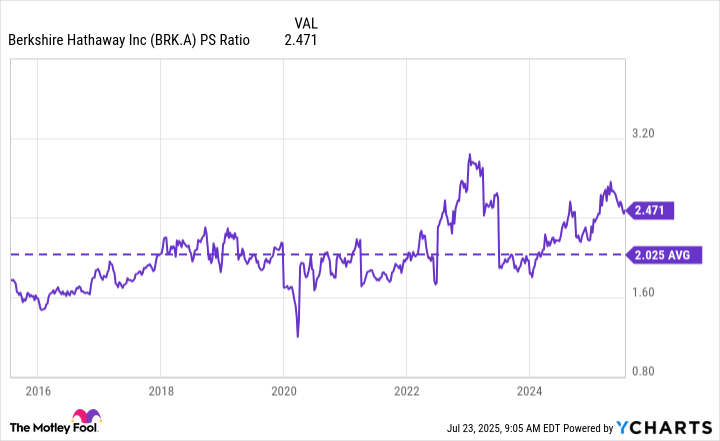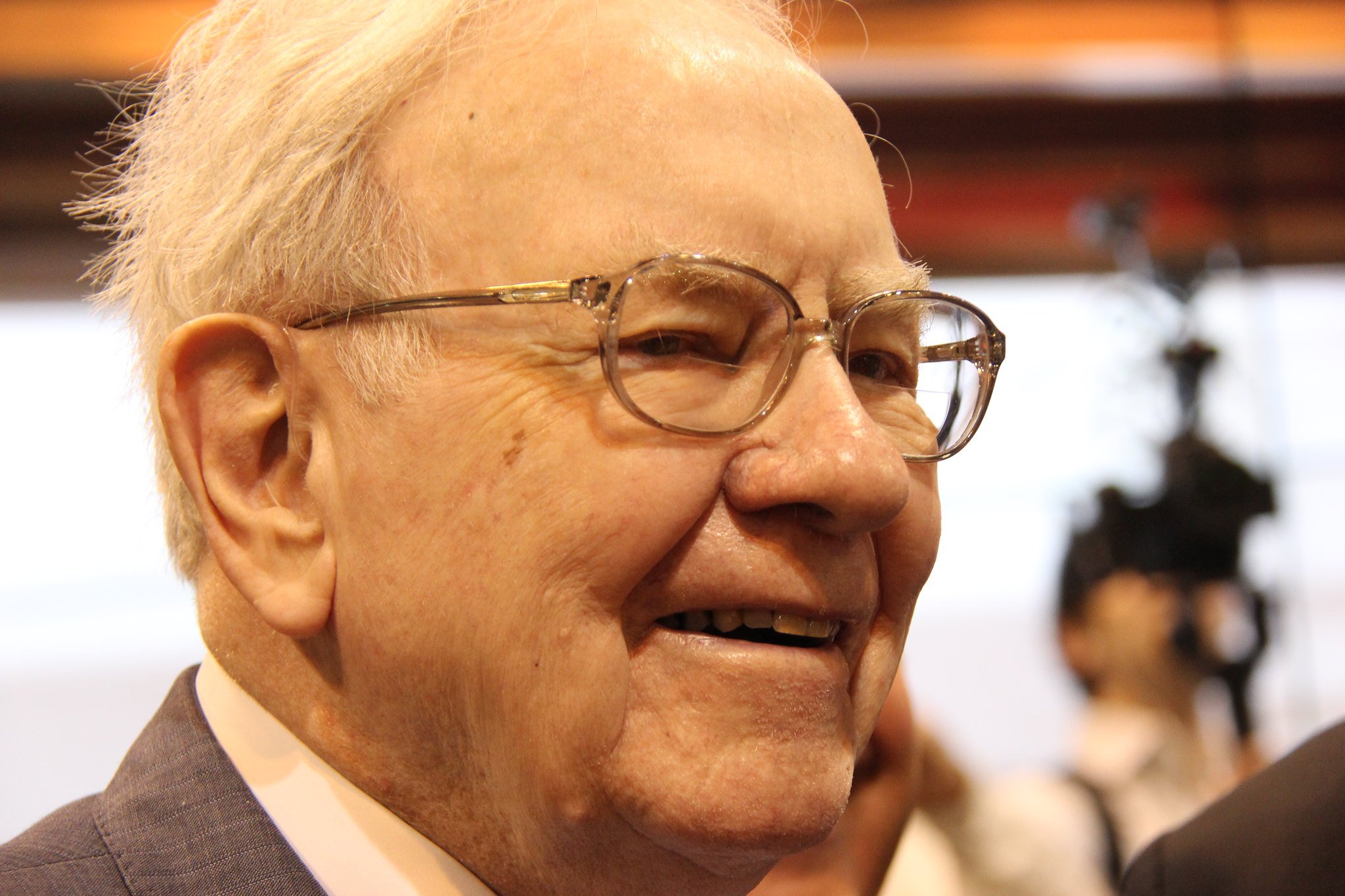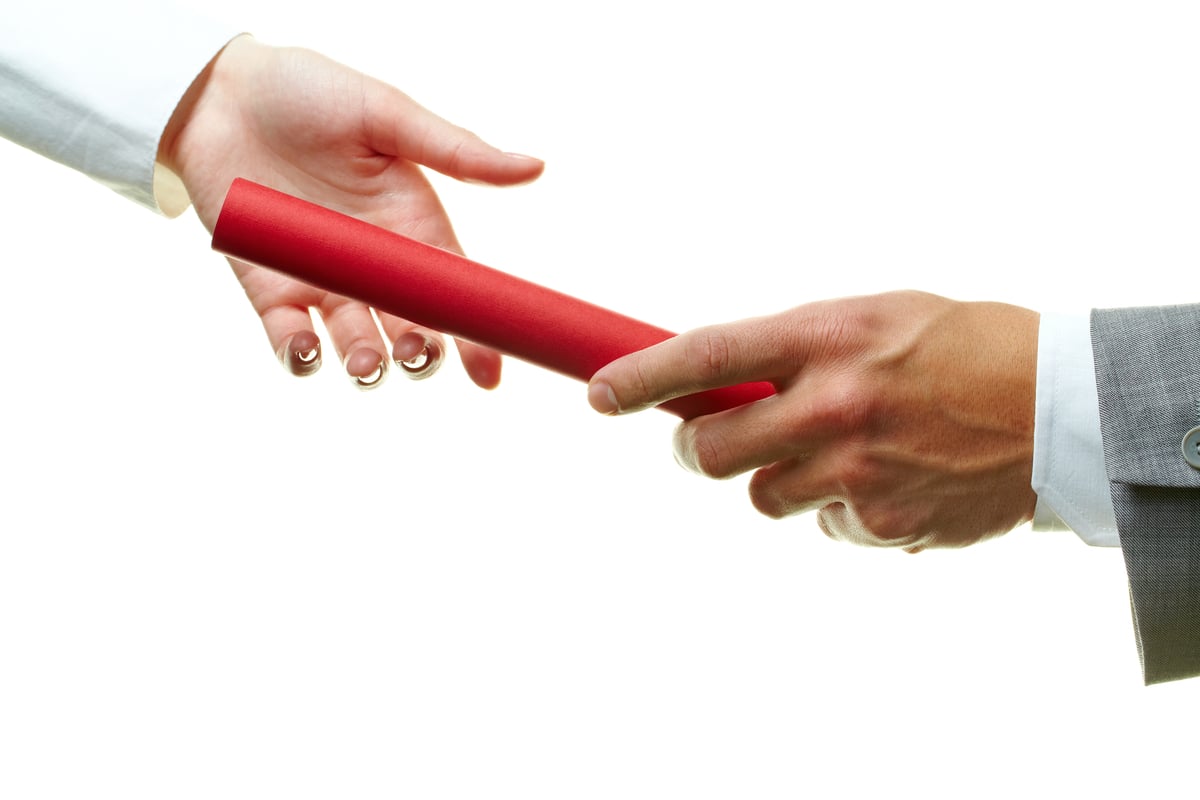In 1965, Warren Buffett took a controlling stake in a struggling textiles company called Berkshire Hathaway (BRK.A 0.56%)(BRK.B 0.64%). After realizing its operations were no longer viable, he converted it into a holding company for his various investments. Berkshire now manages numerous wholly owned subsidiaries and a $292 billion portfolio of publicly traded stocks and securities.
Despite owning a stake in more than a hundred different companies during the past 60 years, Buffett has never expressly named a favorite. But if we follow the money, it's clear he likes some much more than others. For example, he bought about $38 billion worth of Apple (AAPL 0.23%) stock on Berkshire's behalf between 2016 and 2023, which is the most he has ever invested in a single company.
With that said, Buffett has spent more than twice that much buying shares in another name that has soared by more than 4,470,000% since 1965 -- except you won't find it in Berkshire's portfolio.

Image source: The Motley Fool.
Buffett uses a simple but effective investment strategy
Buffett likes to invest in companies with steady growth, reliable profits, and strong management teams. He especially likes those with shareholder-friendly initiatives like dividend plans and stock buyback programs, because they compound his money significantly faster. But his most important weapon is time -- when he buys a stake in a company, his preferred holding period is forever.
Berkshire's Coca-Cola (KO +0.84%) investment is a great example of Buffett's strategy in action. He bought 400 million shares of the soft-drink giant between 1988 and 1994, for a total cost of $1.3 billion. He has never sold a single share, and today that position is worth a whopping $27.8 billion. Plus, it paid Berkshire $776 million in dividends in 2024, so the conglomerate now recoups its original investment every two years or so.
Apple is another company that ticks all of Buffett's boxes, and it has netted Berkshire an enormous profit to date. Heading into 2024, Berkshire's $38 billion investment was worth more than $170 billion and accounted for half of the value of the conglomerate's entire portfolio of stocks and securities. Buffett and his team have since sold two-thirds of Berkshire's Apple stake to cash in some of those gains and to reduce risk.
Kraft Heinz, Visa, Bank of America, and American Express are just a few of Berkshire's other long-term holdings that continue to match Buffett's criteria.

NYSE: BRK.A
Key Data Points
Buffett has plowed $77.8 billion into this stock since 2018
While Buffett's $38 billion Apple investment remains his biggest in any single stock, it pales in comparison to the whopping $77.8 billion he has authorized in repurchases of Berkshire Hathaway shares since 2018. Buybacks are Buffett's preferred way of returning money to shareholders -- repurchases reduce the number of Berkshire shares in circulation, which typically increases the price per share by a proportionate amount and gives each shareholder a larger stake in the company.
You will find Buffett plowing money into buybacks when he feels Berkshire stock is cheap, or when he's struggling to find other attractive investment opportunities.
Buffett hasn't authorized any buybacks during the past three quarters, possibly because Berkshire stock has steadily climbed to new highs. Its price-to-sales (P/S) ratio is currently 2.47, which is a 22% premium to its 10-year average of 2.02, so the stock isn't cheap right now.
BRK.A PS Ratio data by YCharts
Buybacks can continue for as long as Berkshire has at least $30 billion in cash and equivalents on its balance sheet. Since the conglomerate is sitting on a staggering $347 billion in liquidity right now, Buffett and his team can authorize more buybacks whenever they feel the time (or the price) is right.
Berkshire stock has more potential upside
There might be another reason for the lull in Berkshire's buyback program. On May 3, Buffett announced that he would step down as chief executive officer at the end of 2025, so it's possible he's leaving big decisions like share repurchases to his successor, Greg Abel.
But investors needn't worry, because Buffett will continue to serve as Berkshire's chairman. His brand of long-term value investing is likely to endure.
The 4,470,000% gain in Berkshire stock between 1965 and 2024 translates to a compound annual return of 19.9%, which is almost double the annual average return of 10.4% produced by the S&P 500 (^GSPC +0.14%) during the same period. In dollar terms, $1,000 invested in Berkshire stock in 1965 would have been worth an eye-popping $44.7 million at the end of last year, whereas the same investment in the S&P would have grown to just $342,906.
Buffett has built a cash flow-generating machine that will outlast his tenure as CEO, and the $347 billion pile of dry powder he's leaving behind lays a foundation for his successor to propel Berkshire into a new era. As a result, I think the stock has all the right qualities to continue beating the market.














